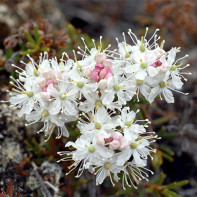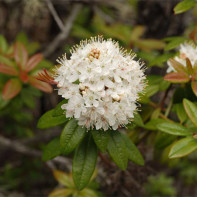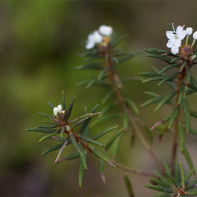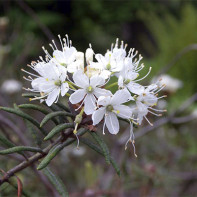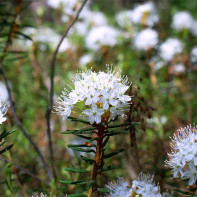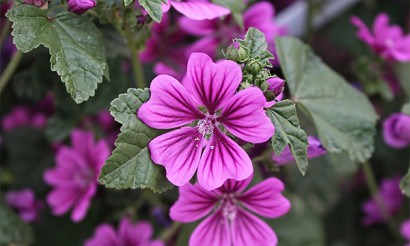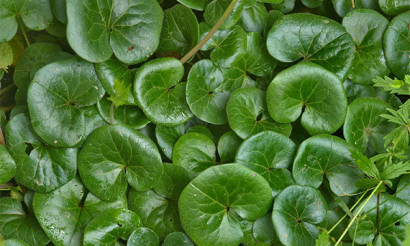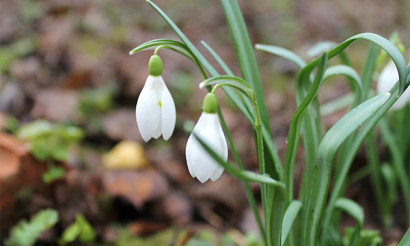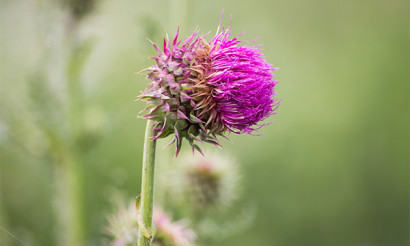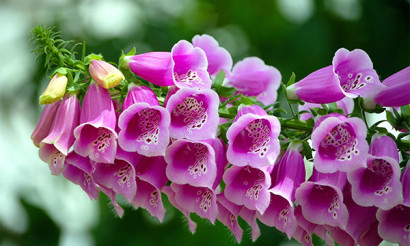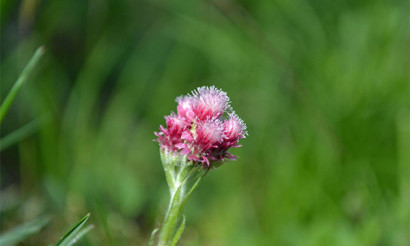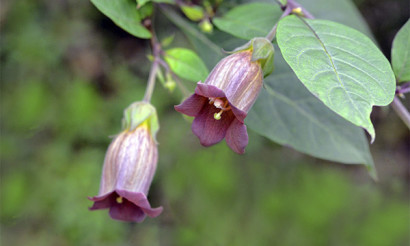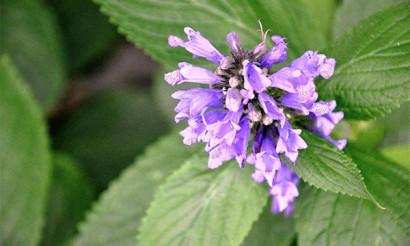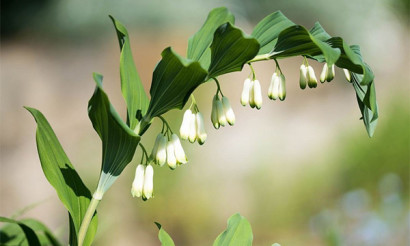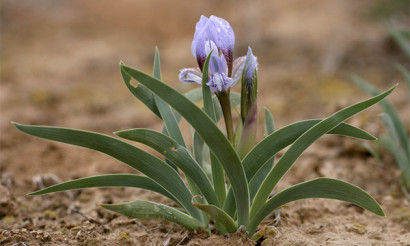Ledum marsh: therapeutic properties and contraindications.
Ledum is a perennial plant, which belongs to the Vereskova family. Otherwise, it can be called holovole, marsh or marsh blight. It is quite a beautiful plant that attracts with its unusual smell. This article tells in more detail about the marsh rosemary, its properties and purpose in human life.
- Chemical composition
- What it looks like and where it grows
- Types
- Gathering and storage
- Therapeutic properties of marsh rosemary
- For Women
- For Men
- In pregnancy
- For children
- Ledum palustre in folk medicine
- Infusion for coughs
- Decoction of marsh rosemary with mother-and-oil
- Decoction of marsh rosemary with nettle cough
- With tuberculosis
- For rhinitis
- For diuretic effect
- For Circulation
- As an antibacterial
- Widely used infusion of rosemary
- Ointment for joint diseases
- Types of medicinal compositions with rosemary
- Infusion
- Tincture
- Decoction
- Tea
- Salve
- Pharmaceutical preparations with rosemary
- Ledin
- Phytopril
- Ledum ointment
- Ledum oil: properties and application
- Cosmetic applications
- Ledum oil application in everyday life
- Contraindications for use
Chemical Composition
Quite a specific smell of rosemary gives essential oils, which are found in almost all parts of the plant, except the root. The main component that is found in the rosemary is ledol. It is the one that is widely used in medicinal preparations.
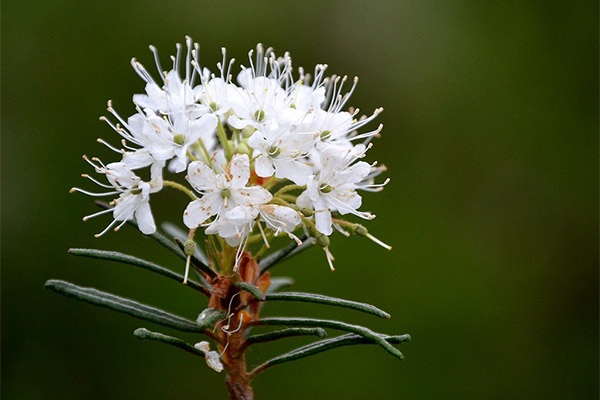
Almost 70% is occupied by special alcohols, which are used to produce such components as cymol, guaiazulene, and geranyl acetate. They have a pungent odor and a bitter taste. They are often used as part of expectorants.
The most essential oils are found in the leaves of the marsh rosemary. To obtain medicines, it is better to collect the leaves of the young plant. The plant also contains other components such as:
- Arbutin. It is often used for such an ailment as staphylococcus aureus. It is good at preventing the growth of pathogenic flora.
- Flavonoids. Have a positive effect on the circulatory system, used to stop bleeding.
- Neomirtillin. Used in the fight against diabetes, has insulin-like properties.
Also the chemical composition of rosemary can vary slightly depending on the geographical location of the plant.
In addition to these substances, marsh rosemary contains a huge amount of vitamins, minerals and amino acids. It is important to know that the younger the plant, the more useful substances it contains.
How it looks and where it grows
Ledum has a constant green color, it grows as a shrub about 60 cm to 2 m in size. The roots often go deep underground, up to 50 cm. The leaves are slightly raised, they can be up to 5 cm long and up to 2 cm wide. To the touch, they are wrinkled, rather dense. The shoots have a brownish hue.
Also, rosemary is the owner of beautiful white flowers, sometimes with a pinkish hue, which can reach 1 cm in diameter. The pungent smell of the flowers spreads over a long distance. Flowers are collected in a peculiar bundle, we can say small bunches, about 10-15 pieces each. Ledum flowering begins after the onset of heat, in May or early July.
Already at the end of summer there is intensive ripening of fruits. In appearance, the fruit has the appearance of a multi-seeded berry of small size, about 0.5 centimeters. At full maturity, the berry blossoms, releasing many seeds.
Propagation of rosemary can take place vegetatively as well as by seeds. It is important to know that it is a very poisonous plant, so you need to use it with caution in life.
Marsh rosemary can be found in many places in Russia, Ukraine, Belarus. It is especially common in Siberia and the East, most often growing on swampy surfaces or in wet coniferous forests.
Species
In addition to the classic marsh rosemary, there are several other species of this plant that are not as common.
- Greenlandic. The plant can be found in the expanses of North America. In appearance is a shrub, the size of 1 to 1.5 m in length with elongated green leaves. Flowering occurs in June and ends as early as July. The flowers are exceptionally white, without any shade (unlike the classic marsh rosemary, whose flowers may have a pink hue). With the onset of frost there is a re-growth of shoots.
- Stemming. A small shrub with a maximum size of only 30 cm. Grows very slowly, about 2 cm per year. Grows most often on stony areas or small mountains. Can be found in Chukotka, North America or the Far East. Flowering occurs at the end of May and the seeds do not mature until the first fall frosts.
- Large-leafed. Quite a tall shrub, reaching a length of 1.5 m. Flowering begins as early as the beginning of May and ends in late summer. Has bright pink rather large flowers with a pungent odor. Occurs in coniferous areas in Korea and Japan and less commonly in Siberia and the Far East.
Gathering and storage
An important rule when collecting rosemary is to protect yourself from the chemical effects of the plant, namely, be sure to wear gloves. A respiratory mask can save you from the pungent smell. It is better to collect marsh rosemary in autumn, when it has already matured. Collect only young plants that are no longer than 10 cm in length, as useful substances are found only in those shrubs that bloom for the first year. For less damage it is better to cut the shoots with a knife obliquely. For treatment, usually collect the leaves together with flowers and seeds, so the raw material will be richer in vitamins.
Harvested rosemary should be dried. This can be done in several ways. For example, outdoors, in the shade, so that the plant does not burn strongly in the sun. In this case, drying will take 2-3 weeks. You can dry in small bundles, which should be tied up and hung in a room with the least humidity. Also, in the age of high technology, you can use a vegetable and fruit dryer. This is the fastest way, because in a day rosemary will be ready.
Store it away from food and other plants, in a container with a tight lid. Since in dried form, rosemary also has a pronounced pungent smell. Use the plant in dried form can be 2-3 years, but no more. Over a long period of storage, rosemary can lose its useful properties.
Therapeutic properties of marsh rosemary
Ledum marsh has many useful substances that are often applicable in the treatment of many diseases. In folk medicine, this plant is famous for the effective treatment of tuberculosis, dysentery, asthma and whooping cough, as well as with the powder from the leaves are removed lice and bedbugs.
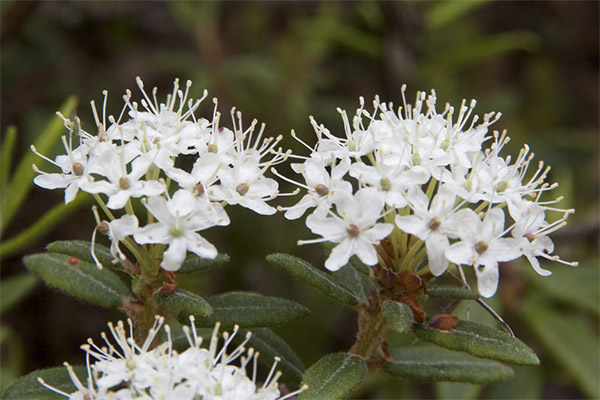
Often, rosemary is used in combination with other plants, such as milk thistle and plantain. This combination is used to treat malaria, cystitis, and even fever. Adding rosemary to ointments can help treat eczema.
In Tibet, rosemary is known as a warming herb. It is often added to tea during severe frosts. It is important to know the exact dosage, since it is a poisonous plant. If you do not follow the rules of its use, you can cause serious damage to health and even life.
For women
Women often use decoction of marsh rosemary for various diseases of the urogenital system. The plant fights well with such an unpleasant ailment as cystitis, having a good anti-inflammatory effect. In gynecology, marsh rosemary also has wide application. It is used for inflammatory processes, decoction treats such an unpleasant disease as genital tract trichomonads. The main thing is to take into account the dosage and not to harm even more. Therefore, the folk methods of treating cystitis in women with rosemary should be treated very carefully.
In addition, women use rosemary in the home. The sharp smell and poisonous substances of the plant scare away many insects. To keep clothes from moths, you can put a few sprigs of dried rosemary next to the garment.
For Men
Men often use rosemary in unforeseen situations while hunting or fishing. The leaves of the plant are good for healing recent wounds, which often happens to hunters. In the woods, humans can attract a variety of insects, including mosquitoes and other nasty gnats. In this case, marsh rosemary is a strong deterrent to unwanted guests. You can put a few sprigs of dried grass in your pocket beforehand. If an unforeseen situation occurred, and the plant was not in the pocket, you can try to find it in the neighborhood.
When pregnant
The effect of this plant on the well-being of a pregnant woman has conflicting opinions. Some people consider it absolutely safe for the future mother and child, while others strictly prohibit the use of the plant. There is an opinion that in ancient times, with the help of decoction of rosemary leaves, women were getting rid of unplanned pregnancy. And, of course, it is better for a woman in the position to refrain from the use of ambiguous decoctions.
For children
For children, rosemary is widely used for acute respiratory diseases. In the medicinal properties of the plant, a pronounced positive effect in diseases of the respiratory system, choking cough, acute bronchitis and asthma.
Pediatricians recommend not using the plant for therapeutic purposes in children under 14 years of age, but even in the pharmacy you can find expectorants, which include marsh rosemary. The use of some preparations is allowed for children from the age of 3 years. Of course, it is better not to use rosemary on your own, i.e. without a doctor's prescription. It can cause the opposite effect and strong allergic reactions in a child.
Ledum marsh in folk medicine
Ledum is widely used in folk medicine. The range of medicinal properties of the plant is simply enormous. Essential oils found in the plant can cause a positive effect in many ailments. Although scientists recommend the use of rosemary with great caution, since it contains, in addition to useful substances, poisonous ice, this does not prevent the use of the plant for many ailments. Below are several folk recipes with the use of marsh rosemary.
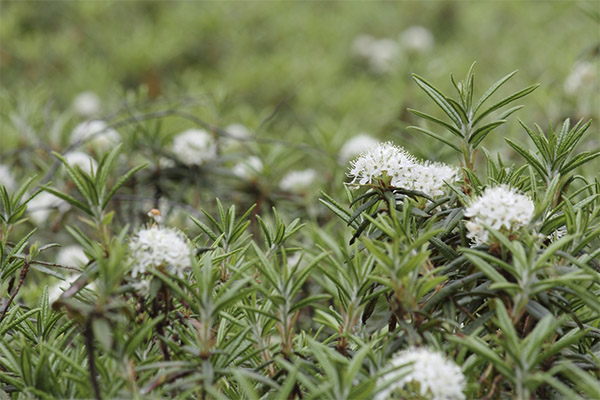
To begin with, there are recipes for diseases of the respiratory system. It is known that the use of marsh rosemary is widespread. It is used in the form of decoctions, inhalations, creams and as part of medicines that can be purchased in the pharmacy.
Infusion for coughs
A tablespoon of pre-dried, crushed rosemary, pour a glass of boiling water and leave to infuse for 40-60 minutes. After that, the infusion must be carefully filtered so that the leaves do not accidentally get into the body when consumed. Then take a teaspoonful at intervals of at least 5 hours.
Decoction of marsh rosemary with mother and stepmother
When coughing, for a better effect, you can add other useful plants to the decoction, such as mother and stepmother. Bring to a boil 1 liter of water, after boiling reduce heat and add in equal proportions of spoonfuls of rosemary and mother-and-forethorn. Allow to simmer for 30-40 seconds and turn off the heat. Allow to infuse for 5-10 minutes, strain well and divide into three equal parts. Decoction should be taken in the morning, at lunch and in the evening, after a meal.
Decoction of rosemary with nettle for coughs
In addition to nettle and rosemary, there are several other components in this decoction. Take a small branch of rosemary, some nettle leaves and a teaspoon of marsh rosemary. Pour 0.5 l of hot boiled water over the mixture and let it stand for half an hour. Take a fourth of a glass for one week.
With tuberculosis
In this disease, use a cold infusion of rosemary. A tablespoon of crushed dried rosemary pour two glasses of cold water. Allow to infuse for a day. Infusion use 3-4 times a day for 2 tablespoons.
With rhinitis
When rhinitis it is used in the form of a special oil, which you can prepare yourself as follows. Pour a spoonful of dried crushed rosemary into half a cup of vegetable oil. Insist at least two weeks, so when there is an outbreak of acute respiratory infections, it is better to prepare this medicine in advance. When the oil is well infused, drip a few drops into each nostril 3 times a day. For the best effect along with this you can apply the classic decoction of rosemary.
For a diuretic effect
In addition to all the therapeutic properties, marsh rosemary is used as a good diuretic for kidney disease or stones, as well as for the treatment of cystitis in women. It is necessary to brew a tablespoon of crushed rosemary in a glass of hot boiled water. Allow to infuse and strain well. Take internally a few spoons 3 times a day before meals.
For circulation
The plant is used as a prophylactic and treatment for many diseases of the heart and blood vessels. Suffering from this ailment can be recommended the following recipe. Boil for 15-20 minutes a tablespoon of rosemary, pour 1 liter of water. Take a teaspoon several times a day.
As an antibacterial
The oil for the runny nose mentioned earlier can also be used to heal severe wounds and burns. To do this, add one third of the decoction of classical rosemary and one third of ethyl alcohol, you can use vodka. Allow to infuse in a cool place for at least 5 days. Dab a small amount of the infusion injured parts of the body.
Broadly applicable infusion of rosemary.
This infusion is used for many ailments such as eczema, rheumatism, flu and rheumatism. Take about 20-30 grams of dried plant, pour 1 liter of boiled water. Put in the warmest place, you can wrap well down cloth to keep warm. Allow to infuse for 5-6 hours. Take internally in the morning, at lunch and in the evening by ½ cup before a meal for a week.
Ointment for diseases of the joints.
It is necessary to take a container, which can be further heated. Pour a glass of crushed dry rosemary in a container and add any fat you have on hand. It can be pork, poultry or mutton. Put on the fire for 3-5 minutes to melt the fat, then stir the resulting mixture. When it cools, place it in the refrigerator. The resulting ointment should be rubbed into the bothersome places 4-5 times a day.
Types of medicinal compositions with rosemary
Ledum is widely applicable to many human diseases. Of course, the main medicinal properties it has in relation to everything that is associated with respiratory diseases. But people have found even more uses for rosemary. From it create a variety of therapeutic compositions, ointments, creams, infusions.
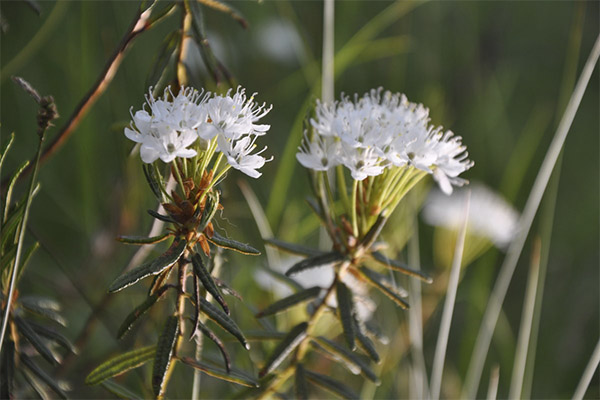
In the East, a very common is such a medicinal composition as honey on the flowers of rosemary. People specifically grow this plant near the apiary. At the same time such honey helps to combat a variety of health problems. If you do not use it in excess, the result can be unpredictable. If you abuse this delicacy, the result can be unpredictable. In taste, honey based on rosemary has a pungent taste and smell.
There are many kinds of infusions with rosemary that have medicinal properties.
Infusion
Aqueous infusion is used as a diuretic and also has a positive effect on the human nervous system. Different types of infusion based on rosemary are used to treat asthma, various types of bronchitis, whooping cough, as well as a lotion for damaged or problematic skin.
For an infusion that is taken internally, you need about 10 grams of dried rosemary berries in 0.5 liters of boiled water. Infusion for half an hour and strain well. Take a tablespoon 3-4 times a day.
There is a solution with a lower concentration. To do this, take a teaspoon of dried marsh rosemary, pour 1 liter of cold water and let stand for a day. Such a solution can be taken not only for the treatment of any disease, but also for prevention, for example, in nervous life situations for calming purposes. Take such an infusion can be taken in the morning and evening by half a glass.
For external use, an infusion of rosemary is made as follows. 3-4 teaspoons of dried rosemary pour 300 ml of hot boiled water. Allow to infuse for 5-6 hours. The infusion can be rubbed eczema of various wounds, wipe wounds, as well as used as a compress in any major wounds.
Some doctors recommend the infusion of rosemary for various diseases, which causes a diaphoretic effect in the body. It can also be used for colds, in the absence of high body temperature, as this infusion has a warming effect on the body. It can be prepared as follows. Approximately 50 g of dried rosemary, pour 1 liter of water and boil for 15-20 minutes. Take this kind of infusion should only be warm, even hot half a glass twice a day.
Tincture .
When rheumatism is used tincture of marsh rosemary. She needed 3-4 tablespoons of dried crushed rosemary, 0.5 liters of alcohol, you can use vodka for lack of the first. The effect of this will not change. Let stand in a warm, dark place, for two to three days. Use as a rubbing 2 times a day.
Decoction .
A special decoction is used for serious respiratory diseases such as whooping cough, asthma, acute bronchitis. A tablespoon of dried rosemary pour a glass of hot water, boil for a few minutes, let stand for half an hour. Well filtered. Take a teaspoon 4-5 times a day.
If such a decoction is slightly improved and vegetable oil is added to it one to one, you can treat various skin diseases, smearing this composition on the affected areas of the body. It is especially relevant for various types of lichen.
Tea
The most common tea collection is taken for the prevention of colds, as well as for allergic bronchitis or asthma. For it will need a few teaspoons of rosemary, dried in advance, 5-6 dried nettle leaves. Pour 1 liter of boiled water and leave for a few hours. Add the resulting collection to tea 2-3 tablespoons.
Tea from dysentery can be taken as follows. About 10 grams of crushed marshmallow root, a tablespoon of dried rosemary, pour 1 liter of boiling water and add to tea by - 3 teaspoons.
For the prevention of such an unpleasant disease like obesity, you can add a special collection to your tea. You will need 20-30 grams of motherwort, which you can buy at the drugstore or collect yourself. Add a couple of spoons of dried rosemary and a tablespoon of horsetail. Boil the resulting mixture over low heat for half an hour. Allow to infuse, add to tea a tablespoon.
Ointment
There are a large number of ointments with rosemary, which can be prepared independently at home. Consider a few of the most common and effective.
- Ointment for scabies on the basis of rosemary has proven itself as a sufficiently effective medicine. You will need 200 g of dried rosemary, the root of white hellebore. Stir the plants together with pork fat. Boil in a water bath for 2-3 hours. Smear 3 times a day on injured skin, as well as healthy to prevent.
- In diseases of the joints you can use the following ointment. You need to take dried rosemary (3-4 tablespoons), boil it, free the decoction from the leaves and add vegetable oil one to one. Allow to infuse for 24 hours. Painful parts of the body to lubricate up to 5 times a day. You may notice relief after the first application.
Pharmaceutical preparations with rosemary
In pharmacies you can find a fairly large number of preparations based on rosemary, which are presented in different forms and are used for various ailments. In pharmaceutics, literally all parts of rosemary are used. These are roots, branches, flowers and leaves, but of particular value in the production of medicines are the shoots of rosemary.
Quite a wide range of medicinal properties of rosemary contributes to the fact that on the shelves you can find medicines based on this plant for almost all known diseases. These include:
- Remedies to help establish blood pressure.
- Infusion of rosemary leaves to fight bronchial asthma.
- Essential oils based on rosemary to fight acute rhinitis.
- Teas that eliminate intestinal diseases.
- Numerous ointments that are used for diseases and injuries of the skin.
Consider the most common pharmaceutical preparations that are most commonly found in pharmacies.
Ledin .
A drug in the form of tablets, aimed at the treatment and prevention of such diseases as laryngitis, acute bronchitis, bronchial asthma. The composition contains the active substance sesquiterpene alcohol. The drug is recommended to take one tablet 3 times a day, for 7-10 days. The contraindications to this drug include the fact that it can only be taken from the age of 16 years, and Ledin can not be taken by pregnant women and during breastfeeding. If side effects occur, such as allergic reactions, nausea or drowsiness, the drug should be stopped. Sesquiterpene alcohol, which is obtained from marsh rosemary, has a strong expectorant and anti-inflammatory effect. Ledin has proven to be very positive and is one of the most purchased drugs for respiratory diseases.
Phytopril
A fairly new drug in pharmaceuticals that aims to prevent stroke and is also used for arrhythmias. It comes in the form of a beta-blocker that normalizes heart function. It contains mainly herbal preparations, including the leaves of marsh rosemary. It is recommended for use 2 times a day, one tablespoon at a time. Use only as directed by your doctor. Perfectly selected components in the composition help the cardiovascular system of the human body.
Ledum ointment
The drug is used for joint disease, and also prevents insect bites. The remedy relieves swelling well and is used for disinfection. It is available in tubes of different volumes - from 5 to 25 mg. The drug contains only natural ingredients, so it can be used by adults and children from 3 years of age. It is not recommended to use for people who suffer from any form of allergic reactions. The ointment should be applied thinly to the damaged areas of the body 5 times a day. Also Ledum in greater consistency is recommended to fight eczema, as a warming agent for severe coughs and treatment of various forms of gangrene.
In addition to this, you can buy ready dried Ledum at a very attractive price in the pharmacy.
Oil of rosemary: properties and application
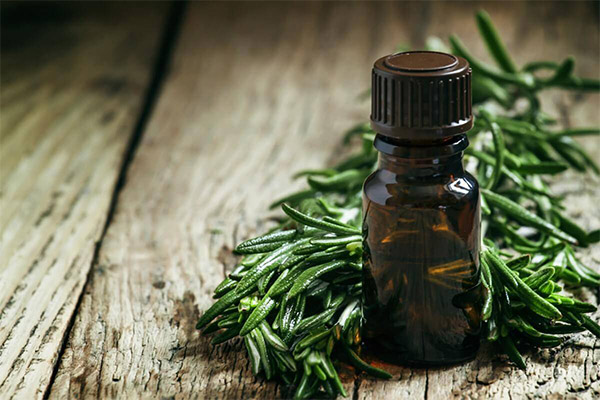
Oil of rosemary has a wide distribution in both folk and conventional medicine. This explains its wide range of properties.
- It is used as a good expectorant;
- Has a devastating effect on the tuberculosis streak in the human body;
- quickly relieves skin inflammation, including burns;
- kills bacteria;
- normalizes blood pressure;
- It is used for rubbing severe bruises.
But with all the positive qualities of rosemary oil should not be abused. Since it contains a fairly large amount of excipients, it can cause allergic reactions. It is worth trying a small amount of oil first, to avoid unpleasant situations. In case of intolerance, it is worth to immediately cancel its use.
Cosmetic applications
The composition of marsh rosemary includes many useful vitamins and minerals, which can have a positive effect on the health of the skin. It has also been proven that the regular use of marsh rosemary in cosmetology has a rejuvenating effect, as well as well toned skin cells and has an anti-inflammatory effect on problem skin. You can find numerous cosmetic products on the shelves in stores, which contain rosemary. It is also possible to make cosmetics at home, it is important not to violate the quantity of the stated components.
- For skin care you can use as a tonic the following decoction: a tablespoon of dried rosemary, pour 0.5 liters of boiled hot water. After cooling filter it. Use a cotton pad to wipe your face 2 times a day after washing without makeup.
- Also marsh rosemary is an aid in problematic scalps, will help combat dandruff. To do this, prepare a solution of nettle leaves with the addition of a few spoons of rosemary, boil for 30 minutes. Take special baths for the head once a day. The consistency to do one to one, that is, half the capacity of water, half the decoction.
- For healthy hair, you can use oil based on rosemary. For this purpose, infuse dried rosemary leaves in vegetable oil, with the addition of a few nettle leaves for one day. Then use as a mask. Apply to clean hair, rinse after 10-15 minutes.
The main thing is to remember that marsh rosemary contains poisonous substances. You need to be careful with the dosages and it is better not to use without a doctor's prescription. Overdose can be even when used in cosmetology. Cases of severe allergic reactions after the use of lotion based on rosemary of greater consistency than recommended have been noted. Side effects also include nausea and dizziness. If any of these are detected, it is better to see a doctor immediately and cancel the use of rosemary.
The use of rosemary at home
The leaves of marsh rosemary are often used at home.
- Most often they are used to eliminate unwanted insects, namely mosquitoes, flies and bedbugs. It has a strong toxic substance that can even be used to repel mice.
- The branches of rosemary can be put in a closet with clothes to keep things from being damaged by moths.
- Farmers give a decoction based on rosemary to horses, pigs and goats for diseases of the gastrointestinal tract, which often happens in animals through gorging.
- Essential oils, which are contained in the marsh rosemary, are widely used in perfumery and in soap making.
- There have been cases of using rosemary in brewing beer, but the effect was not very good. The drink caused severe dizziness and nausea.
- In the East, they grow rosemary for a special honey, which can only be used as a medicine in small quantities.
Contraindications to use
Before you start using marsh rosemary in any form, you should carefully consider all contraindications and side effects.
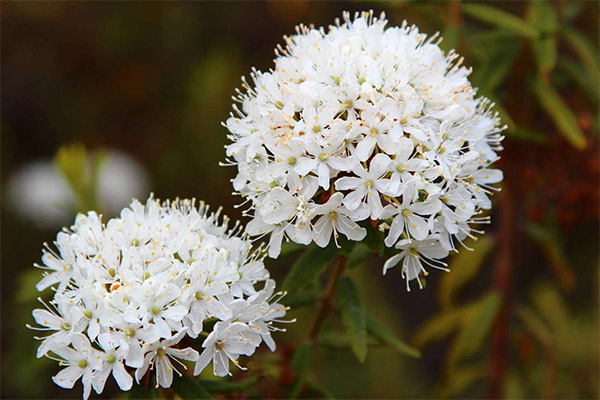
The use of marsh rosemary is strictly prohibited in any form in the following cases:
- If a woman is pregnant or breastfeeding a child. This can be explained by the fact that there are components in rosemary that provoke the strongest bleeding, which can lead to the loss of the baby at any term.
- If a person suffers from low blood pressure, severe allergic reactions, diseases such as pancreatitis and hepatitis.
- In any form for children under 16 years of age.
It is recommended to take into account the exact dosage, which is prescribed in the instructions, if the drug is bought in the pharmacy. Self-treatment should be treated with extreme caution, and it is better to consult a doctor who can prescribe the required dosage.
Drugs and cosmetic products based on rosemary have a number of side effects:
- Dizziness and nausea;
- allergic reactions;
- manifestation of hallucinations;
- Increased irritability, which is associated with a disorder of the nervous system.
If any side effects are noticed, you should immediately cancel the drug and go to the hospital.
The marsh rosemary, with its wide range of uses in human life, is a very popular plant. In addition, it is very accessible to almost every person in every corner of the world. If even there is no possibility to gather fresh rosemary yourself, you can always buy it at the pharmacy in any form at an affordable price. Ledum not only helps against many diseases, but also quite well strengthens the human immune system. Therefore, its use has a place at the preventive level. For example, you can add decoction of rosemary twigs to tea.
The evergreen plant can become an indispensable assistant in maintaining human health, as well as in everyday life. In all this, the main thing is to remember about the poisonous substance in the rosemary. It is better to consult a doctor, beautician or other knowledgeable person about the use of marsh rosemary.
«Important: All information on this site is provided for informational purposes only. for informational purposes only. Consult with a health care professional before using any recommendations. specialist before applying any recommendations. Neither the editors nor the authors shall be liable for any possible harm caused by materials."

